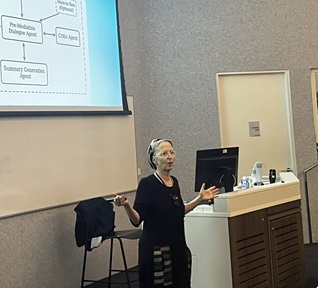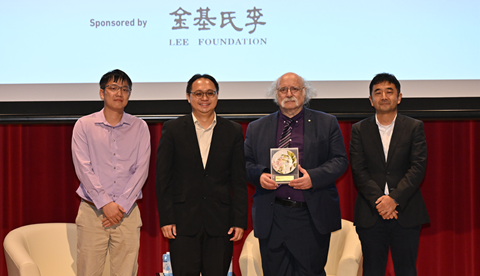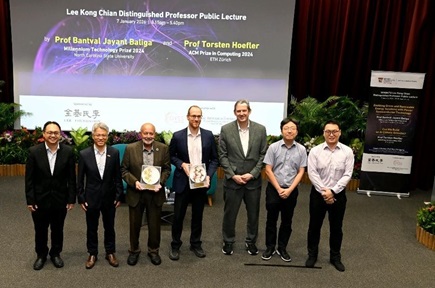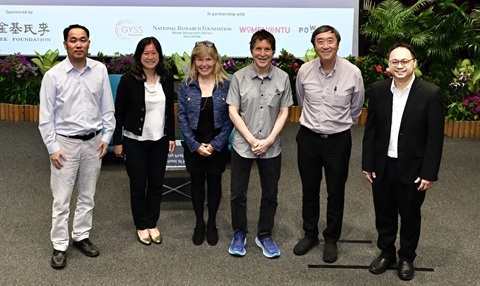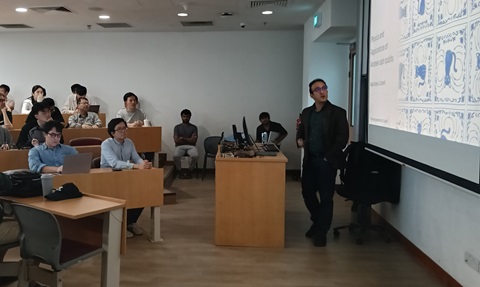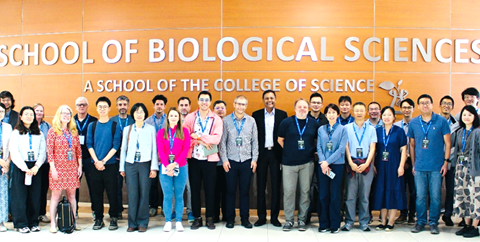Organic-inorganic Halide Perovskites: Tailor-made Excitons for Lasers and Photovoltaics by Prof Emmanuelle Deleporte
IAS Seminar Jointly Organised with the Graduate Students' Clubs of MSE, SPMS and EEE
Held on 31 July 2023 at LT7, the IAS NTU and the Graduate Students’ Club of MSE, SPMS, and EEE jointly organised the IAS seminar titled “Organic-inorganic Halide Perovskites: Tailor-made Excitons for Lasers and Photovoltaics” featuring Prof Emmanuelle Deleporte from ENS Paris-Saclay.

Prof Deleporte's research team is presently dedicated to investigating the synthesis of hybrid materials, encompassing both linear and non-linear optical properties, as well as continuous and time-resolved aspects. Of specific interest to the team are hybrid halide perovskites. Their endeavors entail the meticulous exploration of low-dimensional excitonic effects and relaxation mechanisms, as well as an in-depth analysis of energy transfer phenomena occurring between the inorganic and organic constituents within the hybrid systems. Additionally, they are actively engaged in scrutinising the intricate light-matter interactions occurring within cavities housing these hybrid systems.
Throughout the seminar, Prof Deleporte began by delivering an introductory overview of perovskite materials, elucidating their diverse range of applications in the realm of photovoltaics. Subsequently, she delved into an in-depth exploration of the exceptional amalgamation of characteristics displayed by halide perovskites, thereby highlighting their substantial potential for application in photovoltaic technologies. Notably, the professor underscored the direct band gap phenomenon inherent in these materials, their optimal band gap value, efficient electron-hole separation, advantageous transport properties, and extraordinary defect tolerance.

Engaging audience during the Q&A with Prof Deleporte, moderated by Prof Fan Hongjin from SPMS (standing to her left).
These inherent features collectively bestow halide perovskites with a highly promising and innovative status as semiconductors, rendering them poised to drive significant advancements in the domain of photovoltaics. Additionally, Prof Deleporte presented noteworthy findings concerning the synthesis of 2D halide perovskites to intermediate halide perovskites utilising a cost-effective, solution-based processing technique at ambient temperatures. She showcased promising performance results for room-temperature polaritonic devices, thereby extending their capabilities from the ultraviolet to near-infrared spectral range.
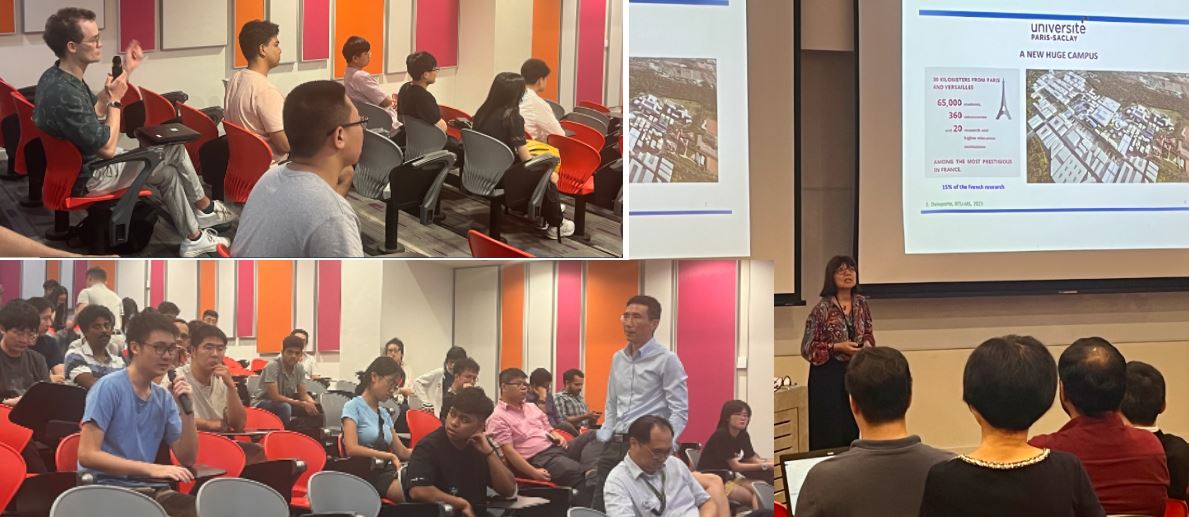
The seminar provided a comprehensive and illuminating insight into the cutting-edge developments and potential applications of halide perovskites, leaving the audience with a heightened appreciation for their transformative impact on the field of photovoltaic technology. The seminar concluded with an insightful Q&A session, where Prof Deleporte's openness and expertise were appreciated with a round of applause. Attendees left inspired and enriched by the valuable discussions on photovoltaics.

[From left] Shakti (MSE GSC), Ernest (MSE GSC), Prof Sum Tze Chien (Director IAS), Prof Deleporte, Prof Fan Hongjin (SPMS), Yasharth (SPMS GSC) and Shrinivas (SPMS GSC)
"It was very relevant and digestible for researchers studying halide perovskites from different aspects" - Chan Wei Xin (PhD student, CCEB)
"The material was very interesting and opened up a new possibility in the future" - Paul Filandow (undergraduate, EEE)
Written by Shakti Prasad Padhy |MSE GSC

